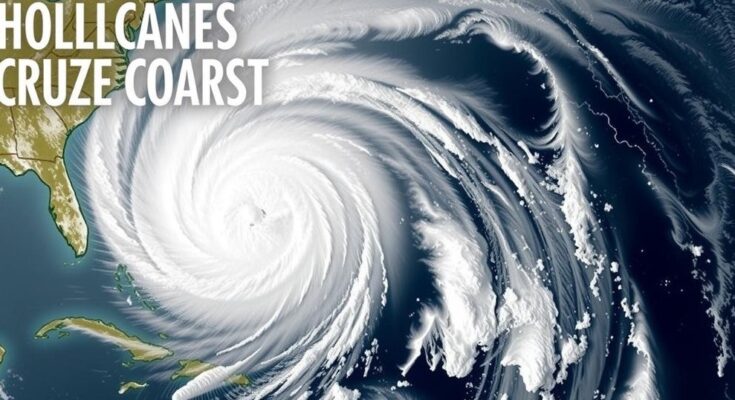Cyclone Chido has caused severe damage and multiple fatalities in Mayotte, and is heading towards mainland Africa. The storm brought extreme winds, destroying infrastructure and prompting emergency responses. Neighboring regions, particularly Mozambique, are at risk of significant impact. The increasing severity of cyclones presents ongoing challenges for vulnerable communities affected by climate change.
Cyclone Chido has inflicted significant destruction in Mayotte, a French territory located in the Indian Ocean, resulting in multiple fatalities and substantial property damage. French officials, including Interior Minister Bruno Retailleau, have reported a preliminary assessment indicating numerous casualties, though specific figures are yet to be determined as rescue efforts are still underway. The storm has been categorized as the most severe to strike the island since 1934, bringing winds surpassing 220 kilometers per hour and demolishing infrastructure such as roofs, the airport, and public facilities. French President Emmanuel Macron is closely monitoring the circumstances as Mayotte, home to over 300,000 residents, grapples with the immediate effects of the cyclone. Rescue operations have mobilized 1,600 personnel to assist the local population, whose living conditions are precarious, especially in informal settlements.
As the cyclone approaches the African mainland, neighboring islands, particularly Comoros, are also experiencing violent conditions. Authorities in Comoros have heightened alerts and have expressed concern for missing fishermen. Predicted trajectories of Cyclone Chido suggest it will soon reach Mozambique, where nearly 2.5 million individuals could be impacted. It is critical that citizens prepare for potential evacuation as weather conditions may worsen, particularly in Malawi and Zimbabwe, where flooding poses a severe risk. Experts warn that the increasing severity of cyclones in recent years, likely exacerbated by climate change, may lead to more profound humanitarian crises in vulnerable regions of southern Africa.
Cyclones are a recurring and destructive phenomenon in the Indian Ocean, with the season typically running from December to March. The region has witnessed a series of devastating cyclones in the past few years, notably Idai and Freddy, which claimed thousands of lives in Mozambique, Malawi, and Zimbabwe. Cyclones can cause catastrophic floods, landslides, and create stagnant water, leading to outbreaks of waterborne diseases such as cholera. Climate change has been linked to the intensifying frequency and severity of these weather events, disproportionately affecting poorer nations that contribute minimally to global greenhouse gas emissions yet suffer the most from its impacts, necessitating urgent humanitarian assistance.
In summary, Cyclone Chido has wrought havoc in Mayotte, resulting in casualties and infrastructure damage as it continues its trajectory towards the African mainland. Authorities are mobilizing significant rescue efforts, while concerns grow about the cyclone’s impact on Mozambique and surrounding countries. The situation underscores the vulnerabilities faced by nations in southern Africa, particularly in light of increasing cyclone intensity attributed to climate change. Prompt action and support are essential to mitigate the humanitarian crises poised to follow.
Original Source: www.cnn.com




